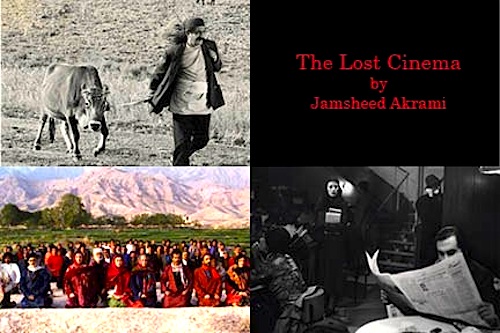 By Joe Bendel. In a bitterly ironic twist of history, the filmmakers associated with the Iranian New Wave helped usher into power the regime that would continue and intensify their oppression. Politically conscious and aesthetically adventurous, the movement essentially came to an end with the 1979 Islamic Revolution it fueled. Jamsheed Akrami’s The Lost Cinema surveys these films that remain largely unseen within Iran, essentially serving as a series overview when it screens as part of the Asia Society’s latest retrospective series, Iranian New Wave 1960s-1970s.
By Joe Bendel. In a bitterly ironic twist of history, the filmmakers associated with the Iranian New Wave helped usher into power the regime that would continue and intensify their oppression. Politically conscious and aesthetically adventurous, the movement essentially came to an end with the 1979 Islamic Revolution it fueled. Jamsheed Akrami’s The Lost Cinema surveys these films that remain largely unseen within Iran, essentially serving as a series overview when it screens as part of the Asia Society’s latest retrospective series, Iranian New Wave 1960s-1970s.
Much like the Asia Society’s series, Lost Cinema starts with Dariush Mehrjui’s The Cow, a film secretly submitted to the Venice Film Festival, where it won the Critics’ Award. Sound familiar? Probably what made Merhjui’s film so politically incorrect was its depiction of abject rural poverty at a time when the Shah was trumpeting Iran’s modernization. Of course, it is easy to understand why the portrayal of the deceitful secret policeman in Parviz Sayyad’s Dead End continued to be banned under the Revolutionary Islamic government.
Likewise, a tale of allegorical repression and revolution such as Bahman Farmanara’s Tall Shadows of the Wind became even more radioactive. Even an ostensibly apolitical documentary like Manouchehr Tayyab’s Religions in Iran remained on the outs after the revolution. A kind of visual essay comparing and contrasting the religions officially sanctioned by the Shah (Islam, Christianity, Judaism, and Zoroastrianism), it more or less placed all four on equal footing. Right, one can see how that would be a problem with the new bosses.

Although everyone loathes admitting it, the Shah’s rule comes off sounding comparatively less monolithic than that of the Ayatollah. After all, these films were largely funded by the government, which reportedly enjoyed the international prestige they generated. The filmmakers and state agencies seemed to be engaged a strange dance of denial, but after the Revolution (and what one filmmaker describes as an initial “four months of freedom”) artistic freedom was curtailed even more severely than before. Indeed, the fact so many of the featured filmmakers were interviewed in exile speaks volumes.
While Akrami only examines a small number of films in detail, he includes representative features, shorts, and documentaries. In some cases, the analysis can be a bit spoilery, but they also provide specific cultural context for a fuller appreciation of each film. It is a lucid introduction to some heavily allegorical films. Recommended for students of film and Persian culture, The Lost Cinema screens this Friday (11/8) at the Asia Society, with Akrami participating in a Q&A afterwards. (As a side note, New Yorkers may also want to catch series curator La Frances Hui appearing on CUNY-TV City Cinematheque to discuss Tran Ahn Hung’s Scent of Green Papayas.)
LFM GRADE: B
Posted on November 4th, 2013 at 6:40pm.


